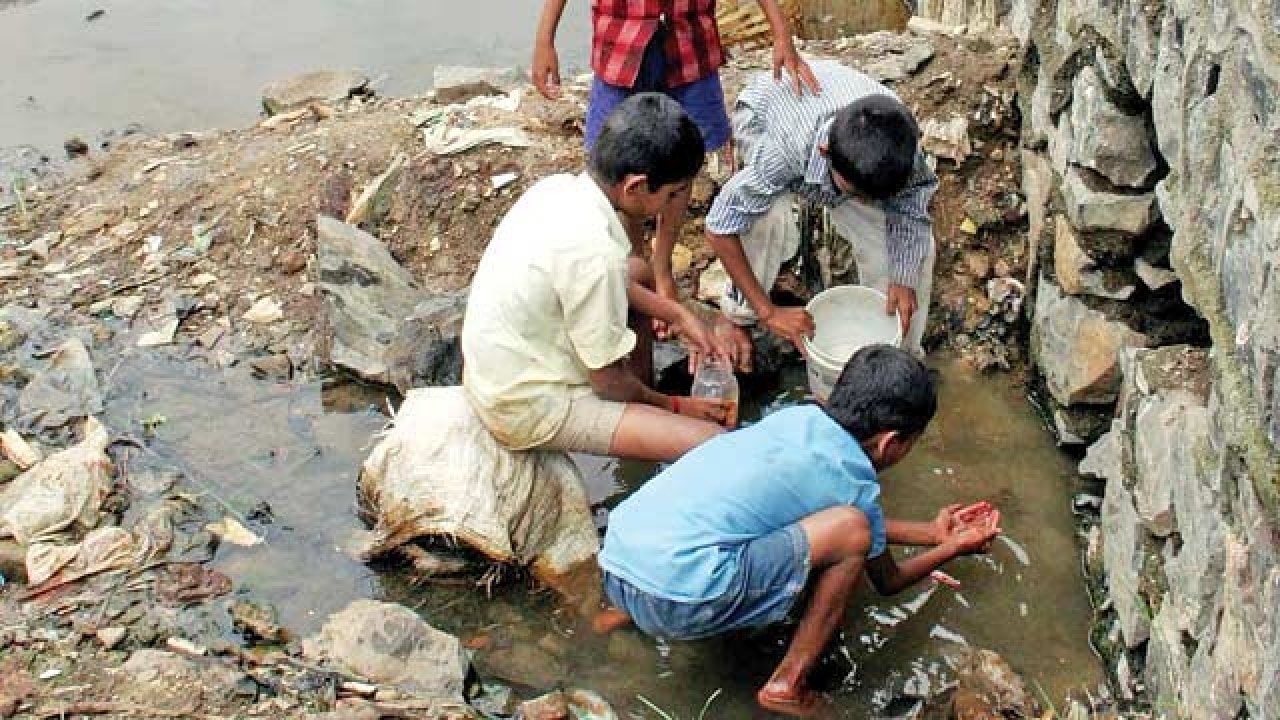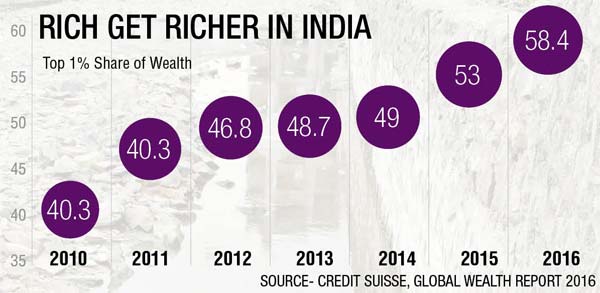
The world’s super rich have accepted that growing economic inequality and environmental risks pose a threat to global economic growth. At the World Economic Forum at Davos, the annual conclave where the missionaries of market capitalism converge to discuss present and future, two main items in the agenda are mounting economic inequality and environmental risks. It is significant that over half of the 400 discussions are focused on social inclusion and development. Ahead of this meet, the WEF released the Global Risks Report 2017, which notes that environmental challenges were ‘particularly vulnerable to any loss of momentum in global cooperation’. This report is particularly relevant to India. It notes that in 2000, one per cent of Indians owned 37 per cent of the national wealth and in sixteen years, by 2016, their share of national wealth jumped to 53 per cent. This stunning growth of inequality, by over 40 per cent in such a short span, raises concerns about policy initiatives.
Economic inequalities can push those at the lower end of the economic strata into unsustainable practices that aggravate environmental degradation. A UN study shows that income inequality has a negative relationship with the environmental quality because of biodiversity loss, wasteful spending and imbalance in distribution of food and water resources. Poor communities heavily rely on firewood as a principal source of energy leading to dwindling tree cover. The tug-of-war between development (of corporations and poor communities) and environment is putting extreme pressure on natural resources to fulfill the basic needs of poor communities and to satisfy the gluttony of the corporations resulting in biodiversity loss. Similarly, uneven income distribution leads to uneven consumption power. The wealthiest in society tends to spend more and consequently produce more waste. Access to safe drinking water and nutrition is inevitably related to economic condition of a community. In India around 75.8 million people are without access to clean drinking water and majority of these people belong to poor communities.
Again, the lower income group bears the brunt of poor environmental quality in terms of challenges to health and sanitation. These challenges further deteriorate their economic conditions. Studies have found that economic empowerment helps improve health, sanitation and environmental quality. For instance, the UNICEF funded a pilot programme in eight villages in Madhya Pradesh where everyone: men, women and children were provided with a monthly stipend without any job obligations for 18 months. The Risks Report says that the result showed that in comparison to other villages, the pilot villages noticed significant ‘improvements in the areas of health, sanitation and environmental quality’ along with ‘food sufficiency, number of hours worked, children’s nutrition, and enrolment levels in secondary schools, particularly for girls’.

With the rise of social inequality, the environmental risk intensifies for those who have limited agency to manage their risk and strengthen their resilience. Economic inequality plays a key role in sharing of the natural resources and ecological space and, to a large extent, distribution of the environmental pollution and its hazards. The contents of the Risks Report are an implicit admission that these risks are not some random natural occurrence, but are a result of the unwitting outcome of scientific knowledge, technocratic decisions and political power. The risks, the world is facing today, is a ramification of the anthropocentric or profit-maximizing corporate interests.
Thus, the global risks are actually, risk conflicts between the decision makers who run risks and define them and the involuntary consumers of the ensuing threats to whom risks are primarily assigned. Those who gained the most wealth - the same people most responsible for the environmental threats— have now converged at Davos to find means to address inequality and environmental risk. It is notable that the Risks Report admits that ‘reforming market capitalism’ is one of the key challenges the world is facing now. The lead actors in the WEF are now looking for a way out in the same system which has created these risks.
The author is an environmental anthropologist.